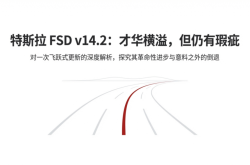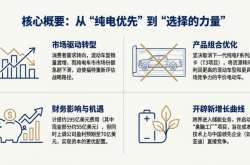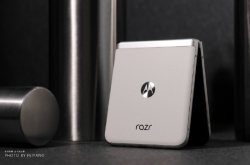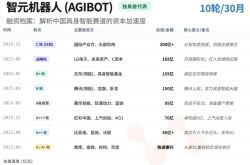Finally! BYD and Huawei have joined forces
![]() 11/13 2024
11/13 2024
![]() 474
474
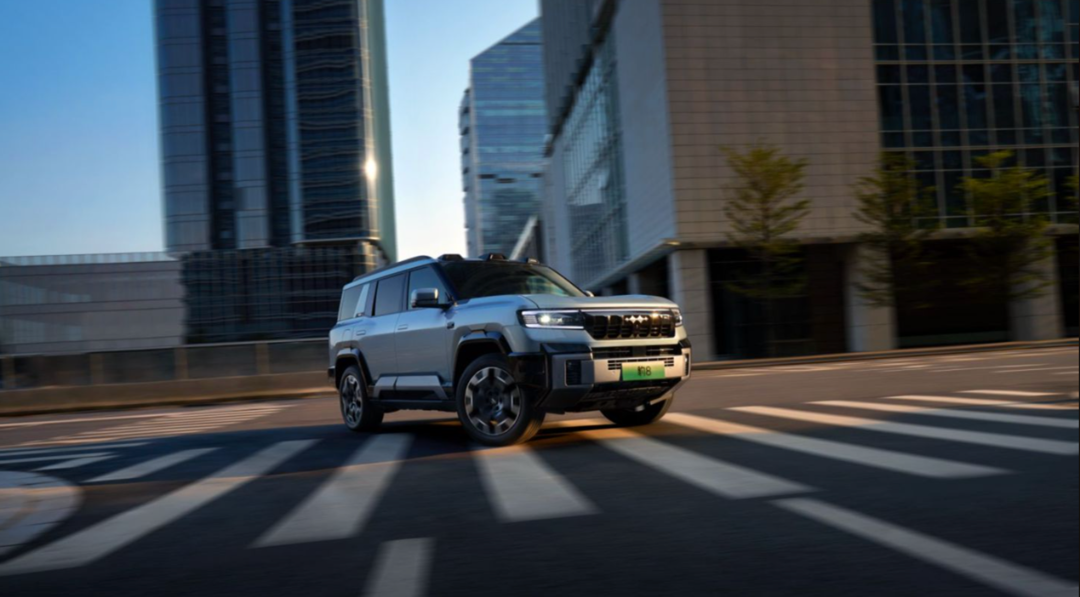
Introduction
Introduction
The FANGCHENGBAO BAO 8 is the first answer from these two Shenzhen tech giants.
Let's first take a trip down memory lane to November 2022, when BYD rolled off its 3 millionth new energy vehicle.
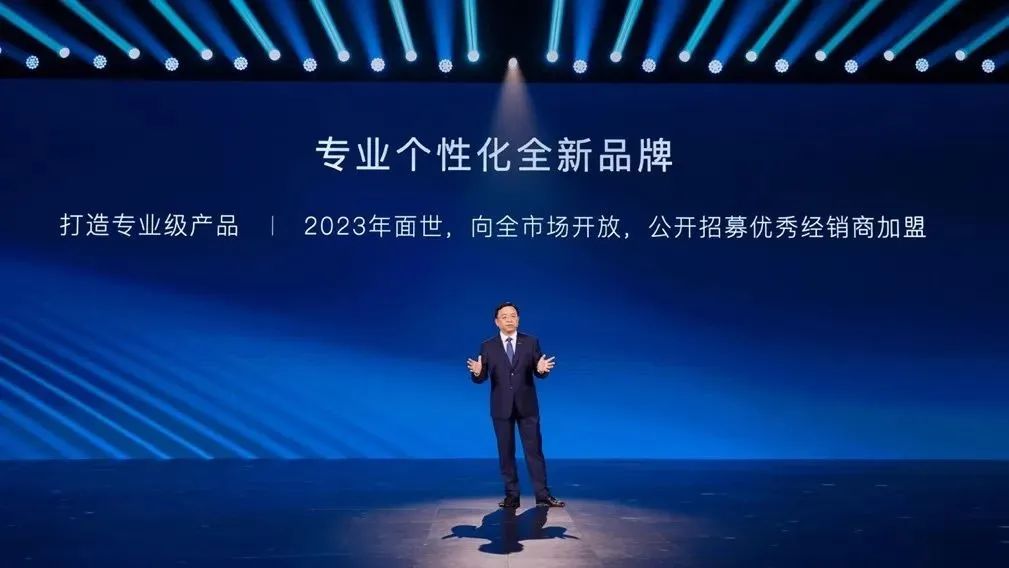
Chairman and CEO Wang Chuanfu thanked friends from all walks of life for their support and officially announced the company's next key strategic moves, including its highly anticipated multi-brand strategy.
In addition to the recently launched premium brand AITO, BYD will also launch a new, professional, and personalized brand in 2023, which will operate independently.
As Wang Chuanfu put it, "This is a bold breakthrough."
Fast forward to the eve of the 2023 Shanghai Auto Show media day, in a hotel conference room in Hongqiao, we had an intense closed-door meeting with the founding team of the brand for the first time.
At that point, many unknowns and uncertainties surrounded the protagonist of today's article, and even the final name was still under discussion.
Fortunately, hard work pays off, and just over two months later, "FANGCHENGBAO" was born.
According to the official explanation, "Equation" represents humanity's wisdom and spirit in solving complex problems, exploring the digital world, and pursuing infinite truths through professional methods. It embodies BYD's standards and rules for professional technology, showcasing authenticity and progressiveness.
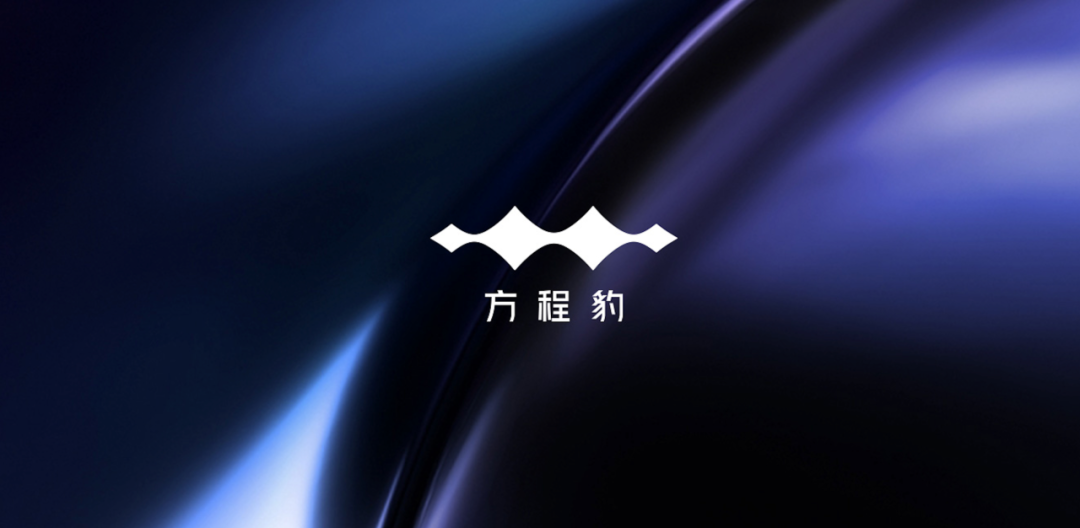
"Leopard" represents users' instinctual desire for products that combine professional electric power and personalized categories, symbolizing change, agility, and the wildness and freedom of animals.
In my simpler understanding, FANGCHENGBAO represents using BYD's most professional new energy technology to create popular products that meet the personalized needs of Chinese consumers.
Following this trend, towards the end of the same year, FANGCHENGBAO launched its first product, the BAO 5. Positioned as a new energy off-road SUV, it quickly gained a foothold in the terminal market with its excellent interior and exterior design, top-notch hardware and software configurations, cutting-edge power system, and unexpectedly competitive pricing.
Although the BAO 5 has experienced some fluctuations this year, through prompt adjustments in pricing, it sold 6,062 units in October, silencing all doubts with its impressive performance.
However, objectively speaking, the most urgent task for the FANGCHENGBAO brand is to quickly expand its still relatively thin product lineup to firmly establish itself in the fiercely competitive Chinese automotive market. At the same time, it contributes to BYD's overall "ascendancy journey."
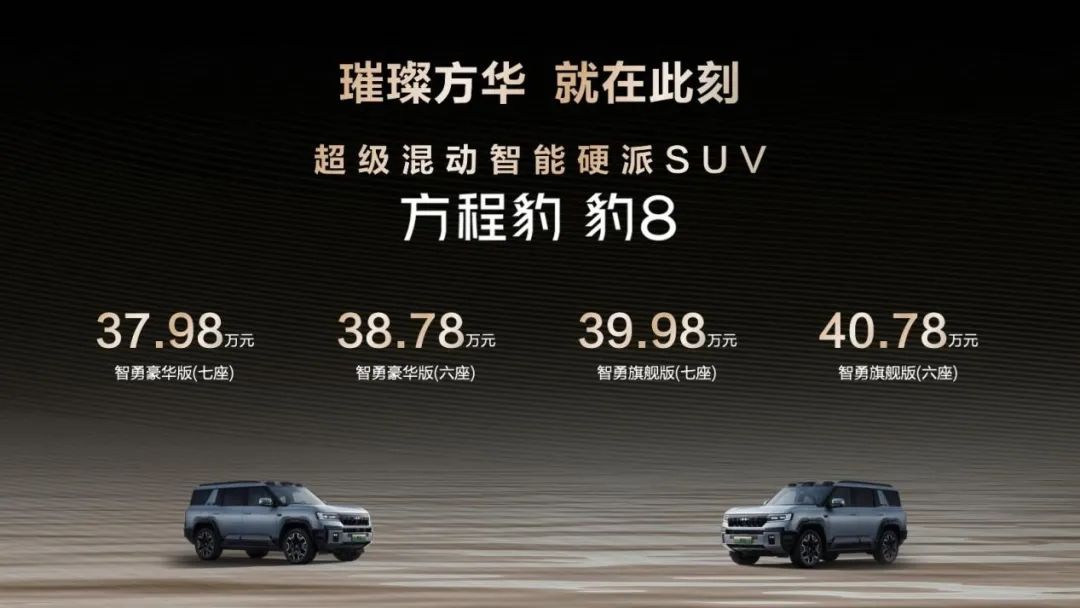
Unbeknownst to many, last night, with the official launch of another new contender, the BAO 8, the brand undoubtedly took a significant step forward.
First and foremost, it's crucial to understand that the protagonist of today's article has become FANGCHENGBAO's flagship model. Positioned as the world's first intelligent off-road SUV, it offers four trim levels.
These include the Zhiyong Flagship 6-seater at 407,800 yuan, the Zhiyong Flagship 7-seater at 399,800 yuan, the Zhiyong Luxury 6-seater at 387,800 yuan, and the Zhiyong Luxury 7-seater at 379,800 yuan.
Frankly, these prices are in line with expectations and complement the "sibling" BAO 5 well, without causing so-called "internal competition."
In terms of product strength, the BAO 8 is "fully equipped."
For instance, it is equipped with BYD's full-featured CloudRide-P hydraulic suspension, the world's first intelligent hydraulic body control system, shared with the premium brand AITO.
It also features FANGCHENGBAO's exclusive DMO electric drive off-road platform (2.0T top-spec version), the world's first hybrid platform that prioritizes electric power while also excelling in urban and off-road environments.
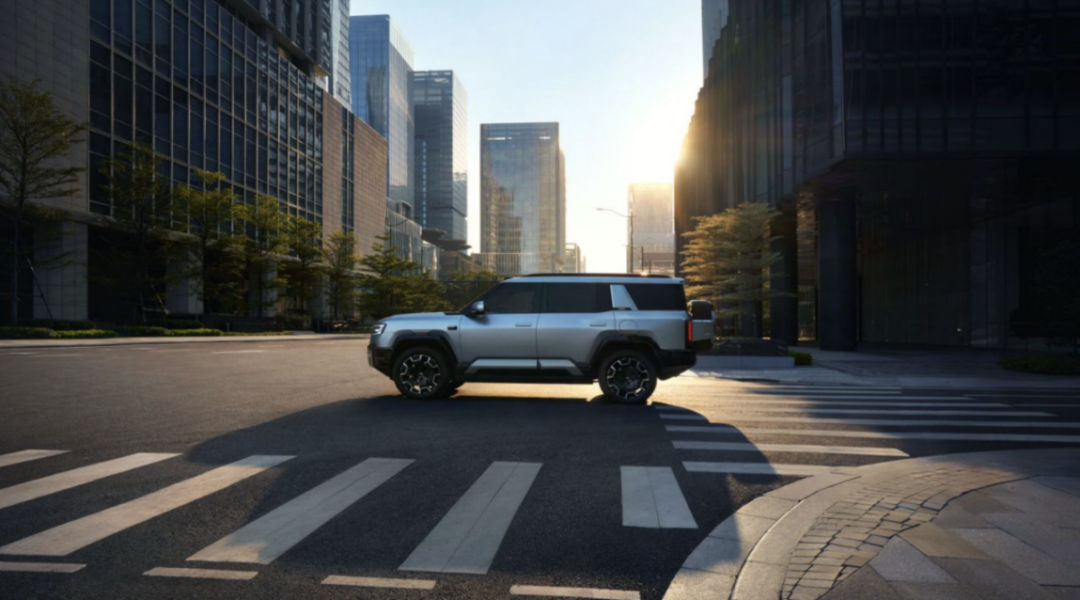
Derived from BYD's latest DM 5.0 plug-in hybrid technology platform, it perfectly integrates BYD's technological advantages of "fast, economical, quiet, smooth, and green" while also featuring outstanding power, off-road capability, and safety.
The system boasts a combined power output of 550kW, a maximum torque of 760N·m, and nearly 750 horsepower, achieving a 0-100km/h acceleration time of just 4.8 seconds and a fuel consumption of only 8.5L per 100 kilometers under low battery conditions.
Moreover, the BAO 8 comes standard with over 200 configurations, including a refrigerator, TV, and large sofa, as well as genuine leather, wood, and foldable elements, providing a luxurious and comfortable driving experience that shatters stereotypes about off-road vehicles.
In summary, after attending the launch event, it's evident that the BAO 8 aims to be a "game-changer." If I had to describe it in one word, it would be "versatile."
In other words, it can efficiently handle commuting during weekdays and take the whole family on adventures during weekends.
Compared to other vehicles, what truly impresses the public about the BAO 8 is its breakthrough in intelligence. As it is also the first collaboration between BYD and Huawei, two tech giants based in Shenzhen.
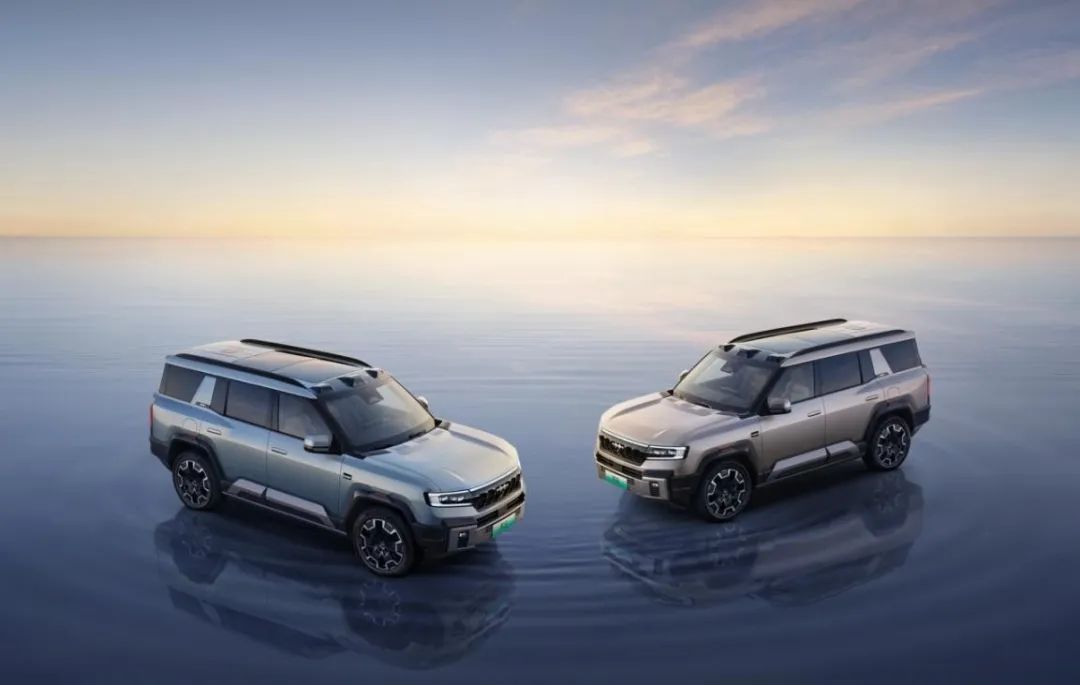
Specifically, the BAO 8 is equipped with Huawei's industry-leading high-end autonomous driving solution, Kunlun Intelligence Driving System (ADS) 3.0. Undoubtedly, based on user feedback, this system is a leader in the Chinese automotive market.
It seamlessly navigates from parking spot to parking spot, autonomously handles complex scenarios like toll gates, roundabouts, and narrow turns, and supports various intelligent parking functions like remote parking and valet parking.
During the launch event, when I heard, "We started working with FANGCHENGBAO in January this year, and by November, ADS 3.0 was already integrated into the BAO 8," I was further impressed by the efficiency of the collaboration between BYD and Huawei.
Upon further inquiry, I learned that in addition to the autonomous driving system, the BAO 8's cabin is equipped with FANGCHENGBAO's exclusive AI-powered cockpit, featuring BYD's 9000 chip with a 4nm advanced process and capabilities such as AI-powered voice and image recognition.
Moreover, the BAO 8 supports the "Fanghua" mobile-vehicle interconnection function, allowing Huawei smartphone applications and services to be extended to the in-car system via HUAWEI HiCar.
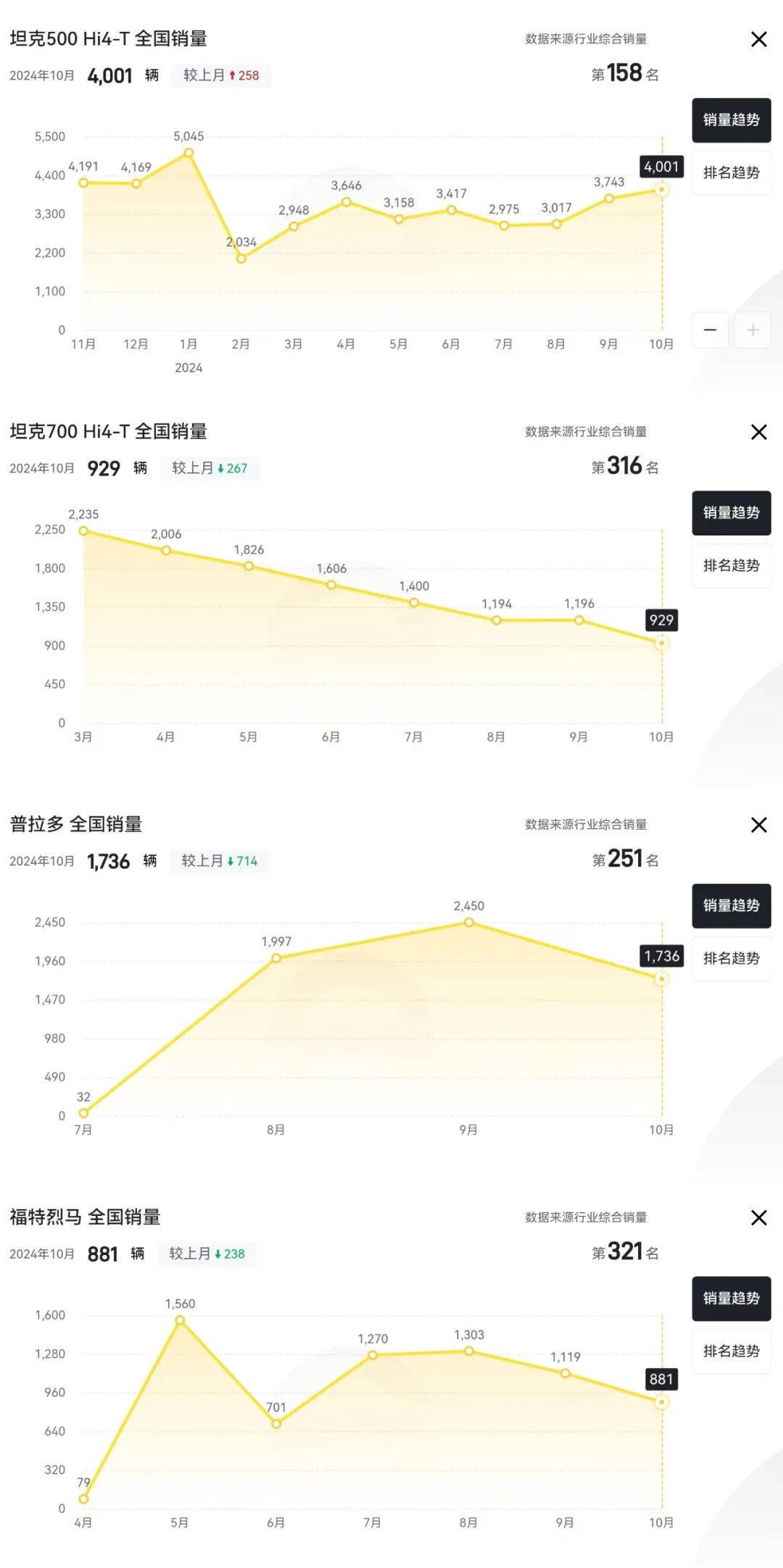
In short, with the support of a strong ally, today's protagonist excels in intelligence and truly deserves the title of "world's first intelligent off-road SUV" with virtually no room for criticism.
At this point, the only question on my mind is: What kind of sales performance will the BAO 8 achieve once it enters a stable phase?
For reference, taking October as an example, the Tank 500 Hi4-T sold 4,001 units, the Tank 700 Hi4-T sold 929 units, the all-new Prado sold 1,736 units, and the Ford Bronco sold 881 units.
All four models have some degree of competition with the BAO 8.
I'm very curious to see how Huawei's "magic" will propel the BAO 8 and whether it can replicate the upward trajectory of the all-new HOZON AUTO Dreamer. The exact answer will soon be revealed by time.
Lastly, I'm eagerly anticipating more sparks from these two Shenzhen tech giants. To put it bluntly, who will be the next one after the BAO 8?

